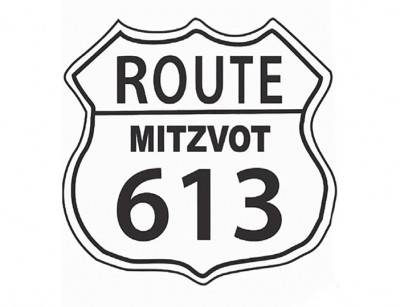
“If you walk in my statutes, and keep my commandments, and do them.”
There is a Mashal (parable) in Baruch Ta’am of a person who was in partnership with his friend for ten years. They always split the profits equally. One of the partners was the businessman, whereas the other was the one who provided the capital. After some time, the one who was running the business said to the one who provided the capital, “If I use my share to pay for all my expenses, such as my food and rent and medical expenses, I will have very little left over. If I don’t spent much on my food and medication and so on, then I won’t be able to run the business correctly, because I won’t be strong enough to do my work. As a result, the profit will be substantially less.”
The other partner told him that all his expenses for food and health would be taken care of by him. Not only that, but any obstacles in his work, the partner would take care of also, so that the other could dedicate himself to the business. “That way” he said, “if you work honestly, your profit will be substantial”.
Hashem gave us the Torah and the Chukim and the Mitzvot to be involved with, all our lives. All the reward that we get from them, G-d keeps with Him for the ’Olam HaEmet. In order for us not to be troubled by our food and health needs, He gives us the promise: אִם־בְּחֻקֹּתַי תֵּלֵכוּ. All our needs will be taken care of by Him, there will be peace in the Land, enemies will not attack us and we will be able to serve G-d with all our heart and might, without any distractions. As if that were not enough, our entire reward is set aside for the next world.
אִם־בְּחֻקֹּתַי תֵּלֵכוּ can be read as אִם־בְּחֻקֹּתַי תֵּלֵך וּ’. If you go in my commandments “six”.
Chacham Yosef Chaim, ’a”h, writes in ’Od Yosef Chai, that the Oral Law includes all the details and reasons and explanations of the commandments. We know that it is divided into six Sedarim and need to know what the significance of the number 6 is.
Logically, one would think that since there are five books of the Torah, there should be five books of the Mishna too. The reason that there are six of them is to represent the six directions of the world: East, West, North, South, above and below. There is a lesson to be derived from each of these directions.
From the East, from where the light comes to the world, comes the element of happiness, as it says, “אוֹר זָרֻעַ לַצַּדִּיק וּלְיִשְׁרֵי־לֵב שִׂמְחָֽה” Light is planted for the righteous, and happiness for the upright heart (Tehillim 97:11). From happiness comes the will to do something, which affects the speed at which a person goes to perform a mitzvah. If a person is happy to do something, the matter at hand is always easier to accomplish.
There is a story about an important judge by the name of Tubia, who was reported to the King about some matter. The king decided to remove him from his position and to punish him by torture. Tubia sensed something was wrong and decided to escape from the country and go to another place. He changed his clothes and at night, left the city, on his own, and walked through the desert, until he reached a river, which he had to cross. There were no boats available and he did not know what to do. A farmer passed by, and immediately recognized him, because he was a well-known and influential judge. Not knowing that he was, in fact, escaping, but assuming that he had some important matters to attend to, he told Tubia, “My master, I will carry you on my shoulders and take you across to the other side of the river”. Tubia was extremely happy, and though he was very heavy on account of his girth, the farmer was very happy to carry him. When they were three quarters of the way, Tubia said to the farmer, “If G-d is good to me and returns me to my position, I will reward you handsomely”. The father was shocked at what he heard. “Aren’t you the judge of the country? Have you been removed from your important position?” Tubia replied that some wicked people had told on him to the king and that is why he was running away.
As soon as the farmer heard this, he dropped Tubia into the river saying, “When you return to your former position I will come back to pull you out of the river and carry you on my shoulders”, and returned to the other side of the river where, a large crowd had gathered to watch, and assumed that he was too weak to carry him. They asked him how come he was able to carry him three quarters of the way, but was unable to muster enough strength to carry him to dry land. He answered, “In the beginning, when I thought that he was the Justice minister, in charge of everything, I was full of joy to carry him, hoping that one day I might need him and he would be able to repay me, so much so that I did not even feel his weight. But once I found out that he was escaping and there was no hope of receiving any benefit from him, I had no more will or desire, and his weight was overbearing and I dropped him in the river.
Chaham Yosef Chaim, ’a”h, says that we see that one’s will gives a person strength to so things above his ability.
From the West, one extracts fear (יראה) and always has in his mind that the light of the Shecinah is facing him, as our Rabbis of blessed memory say, חונה אור שכינה במערב, the light of the Shecinah rests in the West. This guarantees that a person will perform the mitzvot in a complete way, and will not turn away from the right path.
From the South comes חכמה wisdom, as Razal tell us, הרוצה להחכים ידרים, whoever wishes to acquire wisdom should go to the South. One should chase after wisdom, because it is the foundation of the performance of the mitzvot and the study of the Torah.
From the North comes wealth, as Razal say הרוצה להעשיר יצפין, whoever wishes to acquire wealth, should go North. What is meant by this is that one’s wealth should be used for the service of G-d, because there are some commandments which can only be performed by spending money. Also, wealth opens up one’s heart in order to study Torah, as we are told about Rabbeinu Tam, who was extremely wealthy, that he used to put a big bowl full of gold coins on the table where he studied his Talmud. He used to say that gold opens up the heart to delve into the intricacies of the Mishna and Gemara.
Above, represents the positive commandments, מצות עשה, and below represents the לא תעשה, negative commandments, as we say, “סור מרע” (turn away from bad), which are the לא תעשה negative commandments, and “ועשה טוב” (do good) which represents the מצות עשה positive commandments.
We can learn from the pious individual who always looked at people older than him (i.e. looked up) when it came to positive commandments. He would at look how many more mitzvot this person has done than he has, so many more Yom Kippurs that he has witnessed, how many Lulavim he has carried, how many more prayers he has recited, and so on.
When it came to the negative commandments he would look at those younger than he was (i.e. looked down), and would say how many fewer sins the younger person committed.
Looking at others in this manner, makes a person humble, which is essential for a Jew in order to perfect himself.
When one looks at all these six directions, one can get a very strong foundation in the fulfillment of the mitzvot and Torah, and that is the explanation for why there are six Sidrei Mishnah.
Rabbi Ya’aqob Menashe is a renowned author and lecturer, whose Shiurim continue to inspire thousands around the world. Many can be seen at www.NonstopTorah.com. His daily Torah Minutes are eagerly anticipated by thousands every morning. They can be seen at www.ATorahMinute.com. Rabbi Menashe is the spiritual leader of Midrash BEN ISH HAI. More information is available at the Midrash website, www. Midrash.org.
By Rabbi Ya’aqob Menashe
Look At Yourself First
Typography
- Smaller Small Medium Big Bigger
- Default Helvetica Segoe Georgia Times
- Reading Mode













